13 Situations That Prove Rich and Poor People Come From Different Worlds

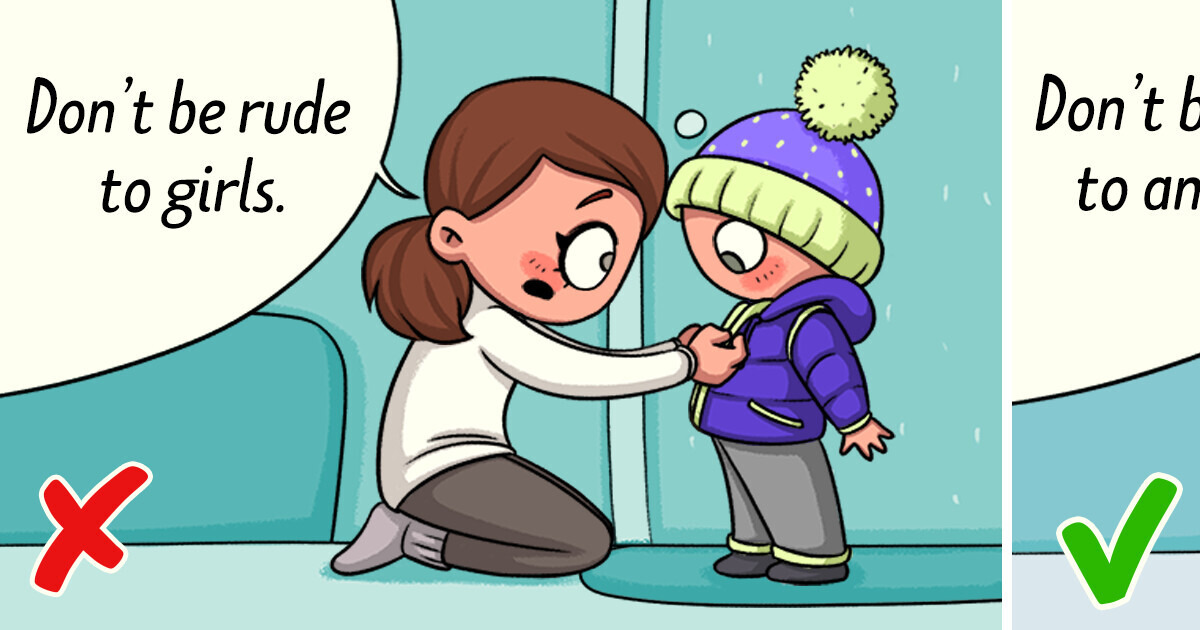
Parenting is no easy task, and many people make mistakes without even realizing it. Small habits or seemingly harmless actions can have a lasting impact on a child’s development. Here are some of the most common parenting mistakes to watch out for and how to avoid them.
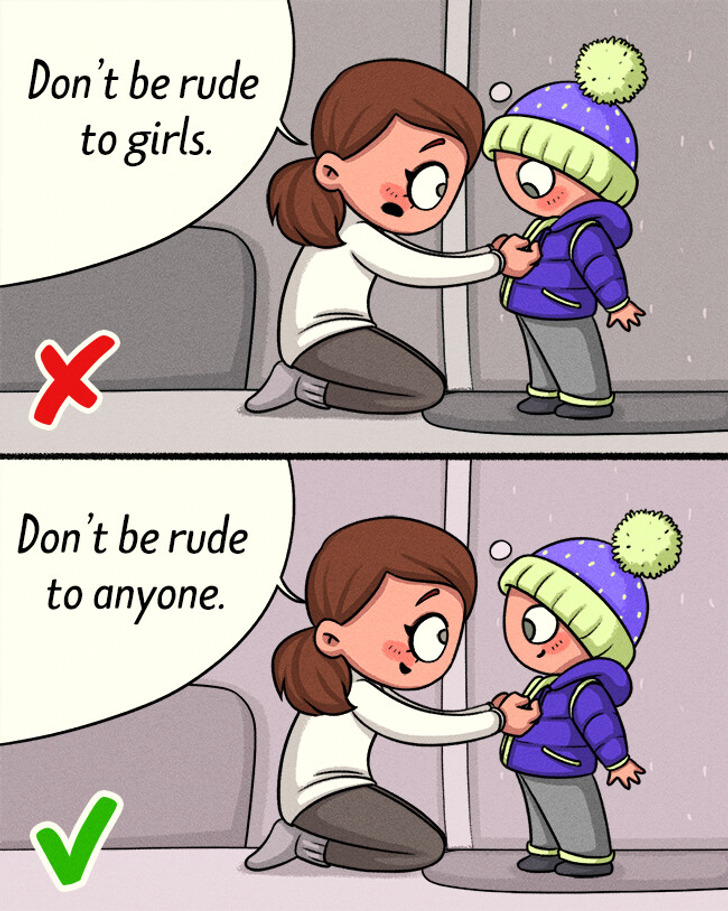
It’s essential to teach children of all genders to treat both boys and girls with equal respect and kindness. When children are raised with the understanding that all individuals deserve the same dignity, they grow up to be more empathetic and fair-minded. By encouraging positive behavior towards everyone, we can create a more inclusive and balanced society. Both boys and girls should learn the value of respect, cooperation, and equality from an early age.
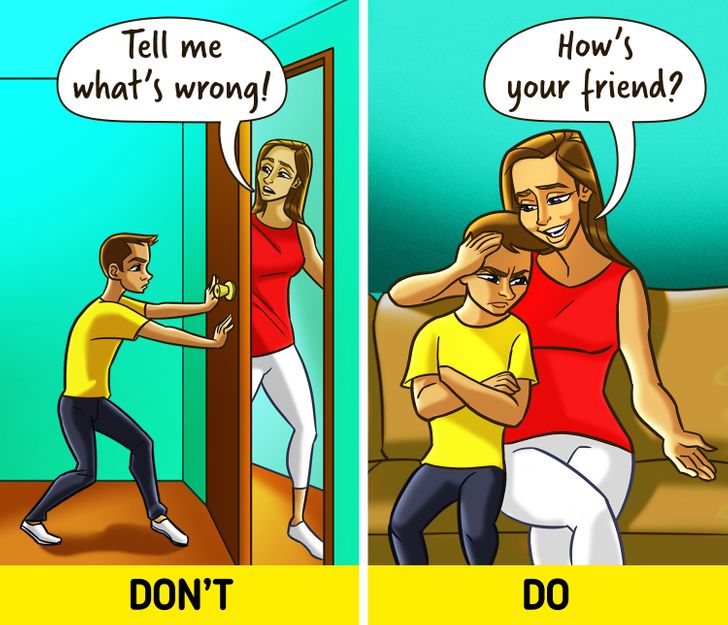
Asking your kid on and on about what’s bothering them can annoy them and make them want to solve their problems alone. We all cope with stress in different ways, and our kids are no exception to that. That’s why, instead of pushing your kid to tell you something they don’t want to, try to ask them less direct, intrusive questions.

Telling your friends or family something your child told you in confidence can make them keep secrets from you. You should recognize your kid’s emotions and try not to over-share, as that can hurt their feelings and make them anxious.
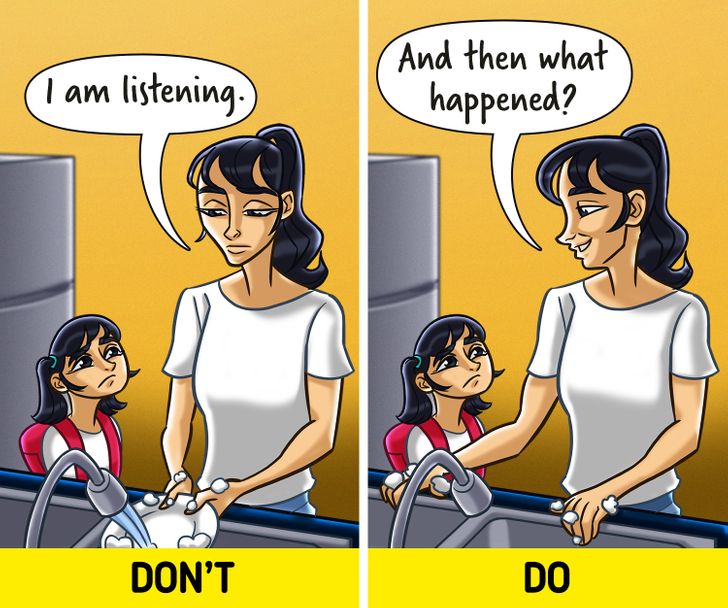
Kids are not always in the mood to talk. But when they come to you, they need your full attention. Otherwise, they’ll think that they aren’t a priority and that they aren’t important to you, which can lead to them keeping their emotions bottled up in the future.
That’s why, when your child comes to you with something important they want to say, stop what you are doing, make eye contact with them, and fully engage in the conversation.
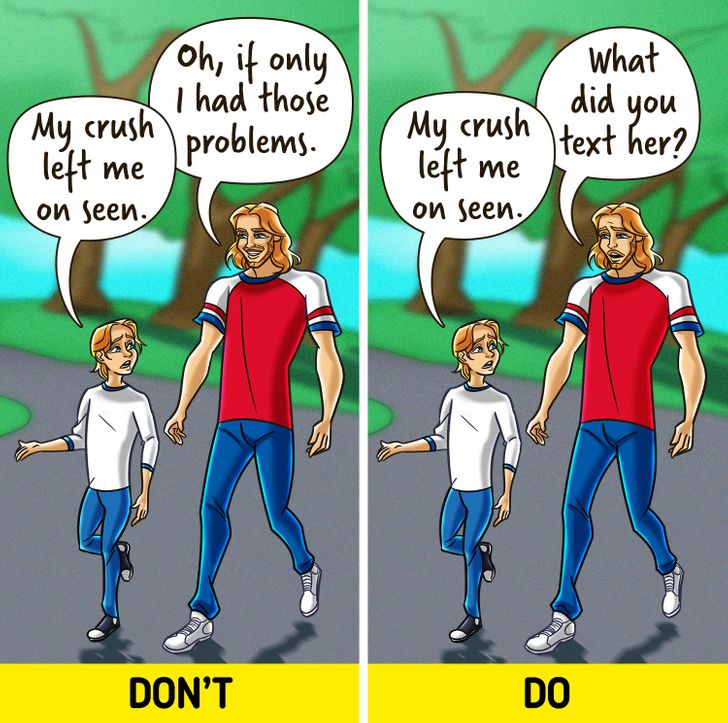
Take your kid seriously, even when their feelings or reactions seem silly to you. Instead of teasing them about the situation they found themselves in, share your own experience or memories to help them cope with the problem better.

When young children are overwhelmed, their brains become “fried,” and they can’t show maturity when they’re tired. That’s why the best way to make them open up to you about how their day went is by giving them a moment or so to decompress and they’ll come to you by themselves.
If they don’t open up to you, you can try asking them precise questions about their day, like, for example, asking them if the teacher liked their drawing or who made them laugh at school. Another way to make them engage in a conversation with you is to tell them about your day first.

Many people think that they should praise their children to raise their self-esteem. In reality, psychologists believe that praising children can be pretty destructive, especially if you praise a child for their qualities or good grades. Ideally, you should praise your kid for working hard.
As a result, your child may lose the proper motivation in their desire to achieve their parent’s approval. Besides, when the child hears that they are gifted they may lose interest in studying and working. Why work hard, if you’re gifted anyway.
Unfortunately, good intentions can sometimes lead to the opposite effect. Here are the actions that may cause problems for children in the future.











